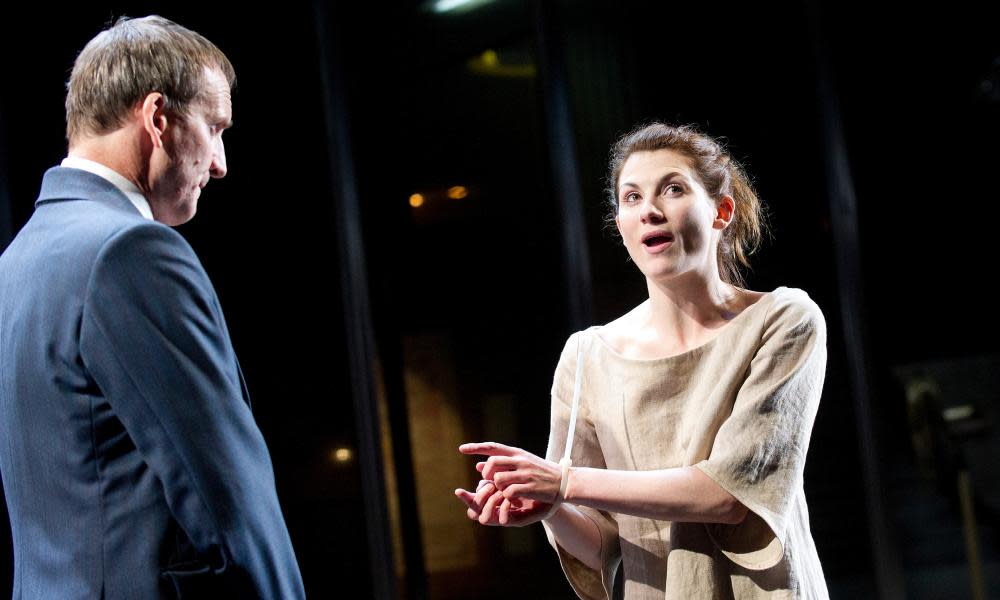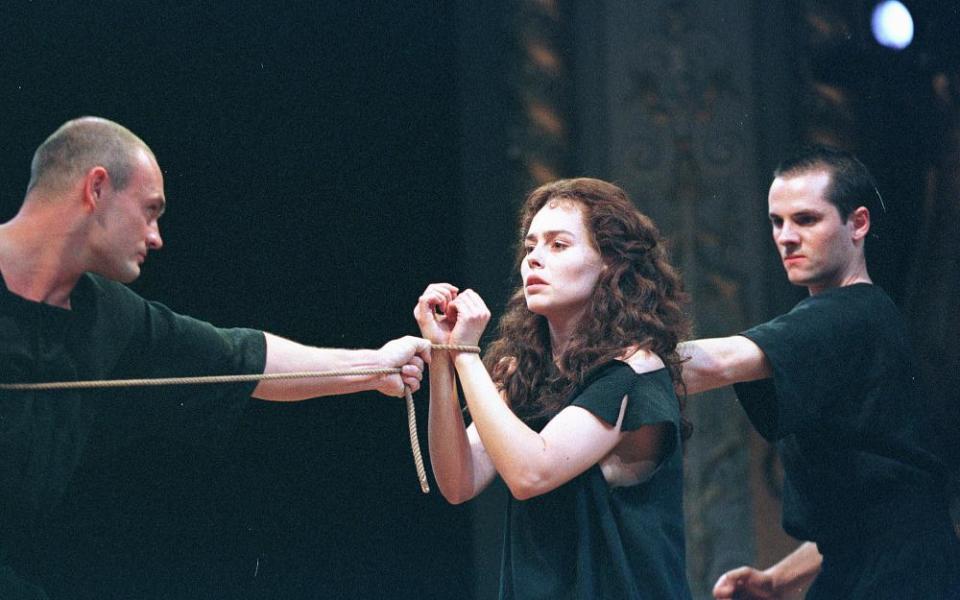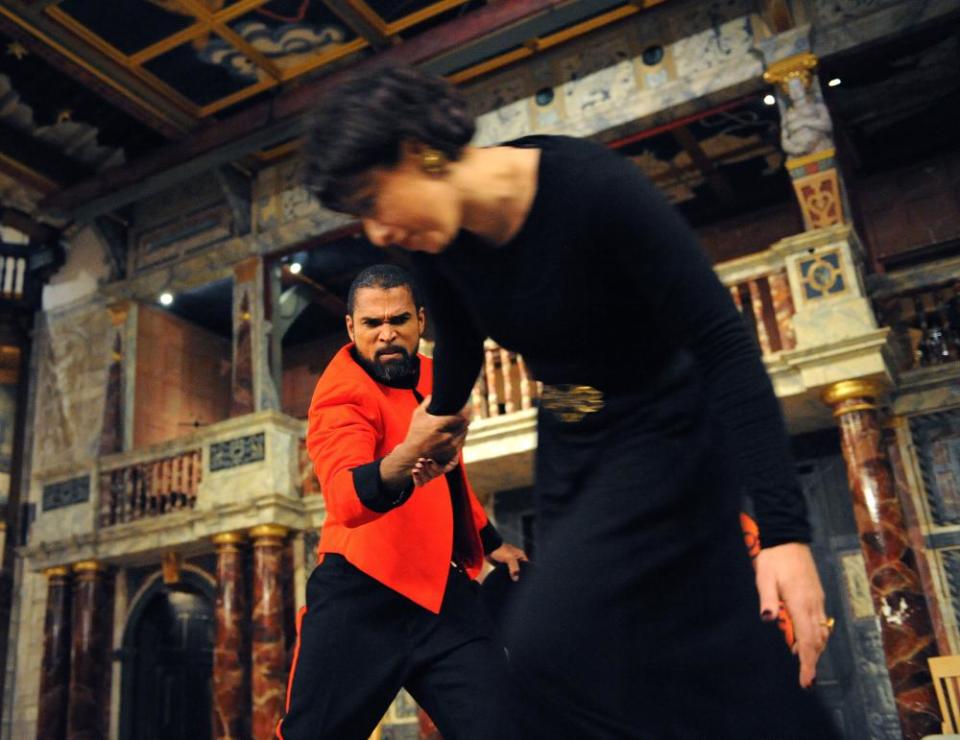Age of Antigone: Sophocles’s arresting tale of the debt we owe the dead

This October sees a rash of productions based on Sophocles’s Antigone. Given that the heroine defies the Theban king, Creon, by burying her dead brother, Polyneices, maybe the collective noun should be “a disruption of Antigones”. Both Merlynn Tong’s version at the Mercury in Colchester, which has a female Creon, and Hollie McNish’s at the Storyhouse in Chester emphasise the play’s modern relevance. But the most radical rewrite appears to be that by Freedom Studios in Bradford. Entitled Aaliyah (After Antigone), it shows two office cleaners challenging authority when they find their brother is being deported to Bangladesh by a recognisably vicious home secretary.
Before culture warriors start fulminating about desecration of a classic, one should point out that Antigone has always been open to adaptation. Jean Anouilh did a famous version, staged in occupied Paris in 1944, in which the heroine became a symbol of the resistance. Brecht’s adaptation, staged in Switzerland in 1948, showed Creon as a Hitlerian tyrant who finally takes Thebes with him down to destruction. And in The Island, memorably performed by John Kani and Winston Ntshona and co-written with Athol Fugard, we saw two prisoners on Robben Island using Sophocles’s play to express their opposition to apartheid. So, far from being theatrical graverobbers, today’s Antigone adapters are in distinguished company.
All that raises an obvious question: why is it that this particular play has acquired such mythic status and encouraged so many rewrites? George Steiner put his finger on it when he wrote: “Antigones proliferate in an age which has known live burial and the obscene refusal of sepulchre to enemies and victims.” Look around any modern warzone and you will find parallels with Sophocles. But this is also a play that raises fundamental questions about the conflict between civil and religious law, political expediency and common humanity. Hegel had a point when he described the play as “a collision between the two highest moral powers”.

Today our sympathy naturally lies with Antigone, the rebel and the martyr. But, in my experience, the play works best when Creon is also seen as a tragic victim: the embodiment of state power who ultimately sacrifices his wife and son to an inflexible principle. And Edmund Wilson raised a fascinating point in an essay in The Wound and the Bow when he suggested there was something pathological in Antigone’s excessive love for her brother.
Wilson seized on a famous passage in which Antigone says she wouldn’t have broken the law for a husband or a son; she’s willing to do it, however, for a brother. However much we admire Antigone, is there not something morbid about her sibling fervour? The best productions I’ve seen transcend moral melodrama – good versus evil – and recognise the play’s endless complexity. Polly Findlay, using Don Taylor’s translation, directed a modern-dress version at the National in 2012. Jodie Whittaker, long before she became Dr Who, was a compelling Antigone: a genuine subversive who believed nothing was more important than the debt we owe to the dead. But Christopher Eccleston, one of her predecessors as the time-travelling doctor, was a charismatic Creon dealing with a state in crisis: less a brutal tyrant than a figure fatally in thrall to the idea that authority is somehow sacrosanct.
The notion that this is a play about the opposition of two equal forces also animated a production that Declan Donnellan staged at the Old Vic in 1999. My memory of Tara Fitzgerald’s Antigone is of a fiercely determined woman much possessed by death. But I have an equally clear recollection of Jonathan Hyde’s Creon: a poker-backed chauvinist but finally a tragic figure, emitting staccato, stabbing cries of pain, as he confronted the cost of his inflexibility.

That was from Donnellan’s own translation but, of the many good ones available, my own favourite is Seamus Heaney’s The Burial at Thebes. I wasn’t crazy about the production it got at the Abbey theatre in Dublin in 2004, but Heaney’s version is a model of clarity and both topical and timeless. When Antigone quoted Creon’s dictum that “Whoever isn’t for us is against us” one was instantly reminded of George W Bush’s similar declaration to Congress. Yet when a Messenger described how Creon’s dying son, Haemon, clung to his intended bride, Antigone, as “a wedding witnessed in the halls of death” one felt in the austere presence of great poetry.
Antigone, by my reckoning, is a play with not one but two tragic victims. But each age comes up with its own interpretation and adapts this great, multi-dimensional play to the temper of the times. As Don Taylor rightly pointed out: “Sophocles is one of us, not one of them, buried in centuries of dust in forgotten libraries.” Which is why Antigone will go on being performed, and radically rewritten, as long as people go on staging plays.
Antigone is at the Mercury, Colchester, 5-16 October, and at the Storyhouse, Chester (and live-streamed), 13-23 October. Aaliyah (After Antigone) is at Impact Hub, Bradford (and online), 8-16 October.


